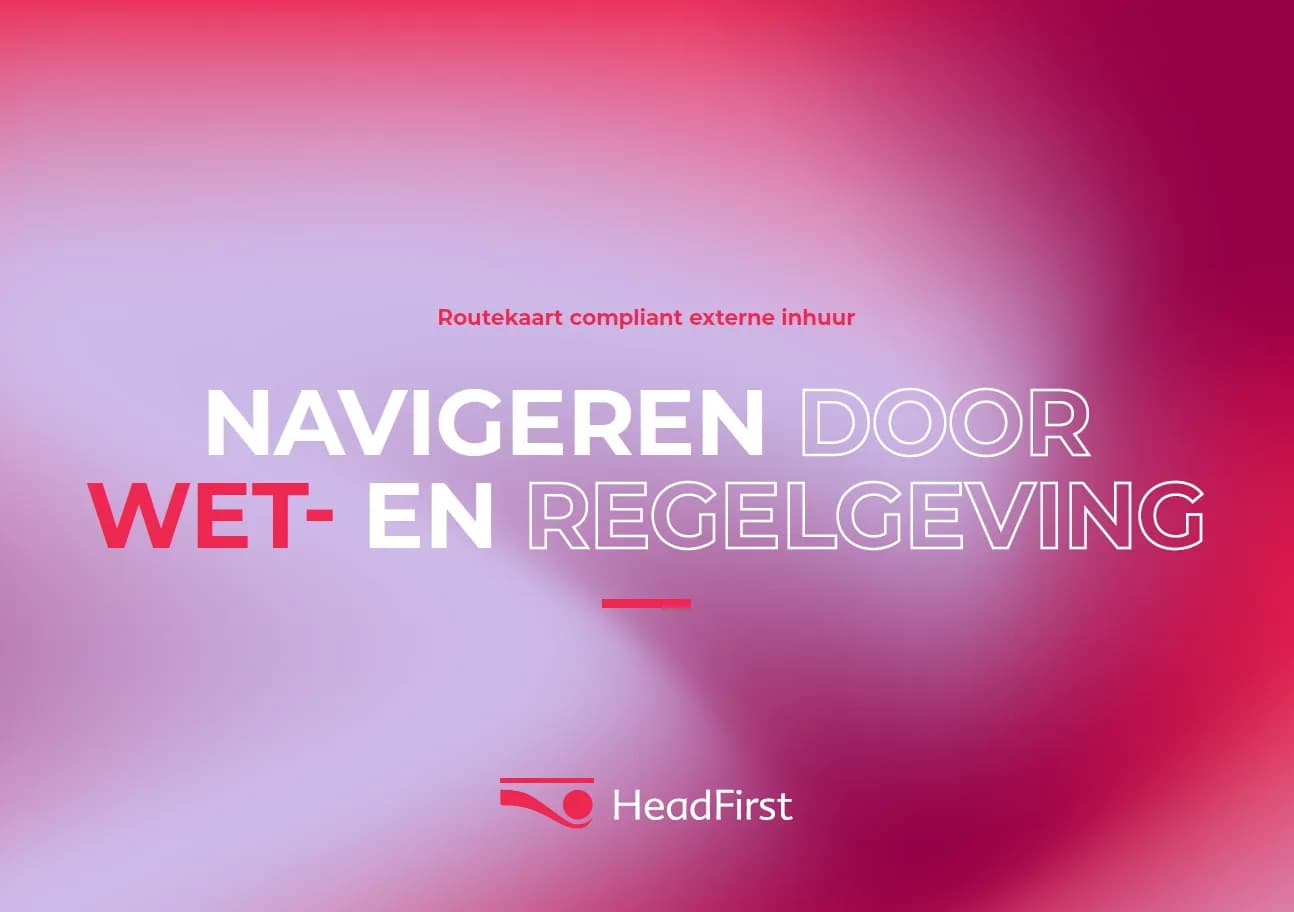You think you're doing well. You hire an independent professional for a project that needs to start quickly. No permanent contracts, but the right knowledge at the right time. But then... the Dutch Tax Authority is knocking on your door. Was that self-employed professional really self-employed?
Welcome to the playing field of external hiring in 2025. A field that is constantly evolving, and where it's becoming increasingly difficult to clearly see what's allowed and what's not. Time to navigate this maze of laws, rules, and policy proposals so you don't encounter any unpleasant surprises.
The DBA Act: Back in force
Since January 1, 2025, the bar has been raised. The Dutch Tax Authority is enforcing the DBA Act and bogus self-employment more strictly. The legislation hasn't changed, but the enforcement of it has, which is now much stricter. Inspectors visit companies, launch investigations, and issue fines or additional assessments for violations. This is especially true when it turns out that a "self-employed professional" is actually just an employee.
Deliveroo and Uber: Game Changers in Jurisprudence
What exactly is false self-employment? And when is someone truly an entrepreneur? The Supreme Court provided firm answers to these questions in the Deliveroo and Uber cases in 2023 and 2025.
The core of both rulings: it's about the bigger picture. The judge looks not only at the contract, but also at the practical situation. Does the professional work as part of your organization? Are there fixed hours? Does the professional have multiple clients and bear commercial risk?
For you as a client, this requires due diligence. There's no checklist you can simply tick off; every situation is different and requires a tailored approach. That's precisely where the challenge and the opportunity lie to get it right.
How do you stay within the lines?
Staying within the lines doesn't mean you have to seal everything off with thick contracts and legalese. It's about knowing the risks and making conscious choices. Start at the beginning: ensure a well-substantiated contract. Preferably use model agreements from Dutch Tax Authority and fill them out carefully.
Clearly state that the professional works independently and put attention to the wording. Provisions that resemble employer authority, such as performance reviews, mandatory working hours, or mandatory attendance, will work against you. Instead, focus on the agreed-upon result, not on how the work is performed.
Three points to consider:
- Explicitly exclude management and supervision.
- Specify the consequences of management or authority relationships.
- Focus the contract on the assignment and the result.
It doesn't stop there. Structure your processes and make compliance part of your way of working. Use a checklist to assess each assignment with an independent contractor beforehand. Check whether there are sufficient characteristics of entrepreneurship. Based on this, you assign a color to the assignment: green for low risk, orange for doubtful situations, or red if the situation is unsatisfactory. Take immediate action if there are any red flags.
Train managers in the do's and don'ts of working with external staff. Let them understand that a freelancer is not an employee, even if it sometimes feels that way. Clearly document your choices, ensure that contracts are and remain in order, and conduct regular reviews. This approach not only reduces risk but also builds trust with your professionals and with the Tax and Customs Administration.
Our roadmap provides more practical insights, legal frameworks, and concrete tips for hiring externally without legal risk. This way, you'll gain a handle on the rules and maintain the flexibility you need.
Download the roadmap and future-proof your external hiring.

